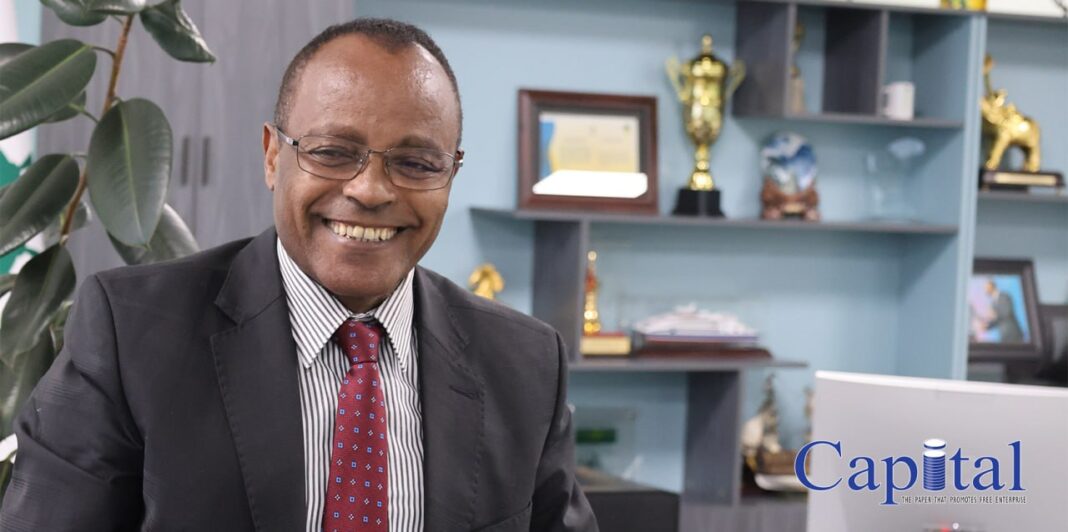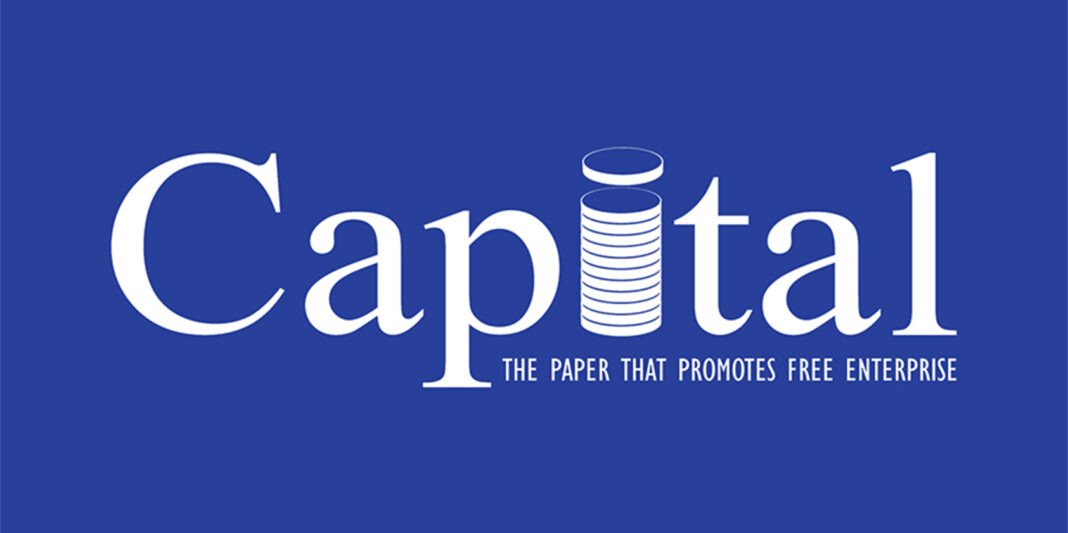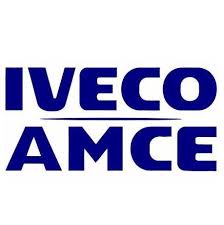The board of Ethiopian Shipping and Logistics (ESL), chaired by Finance Minister Ahmed Shide, has approved a long-awaited capital increase for the state-owned logistics company. This strategic investment will significantly enhance ESL’s operational capabilities and support its ambitious growth in both regional and international logistics markets.
The capital boost will raise ESL’s funding tenfold, from 20 billion birr to 200 billion birr, strengthening its capacity and facilitating expansion across key logistics segments.
This decision was finalized during a recent board meeting attended by government officials, public enterprise leaders, and private sector representatives, including Takele Uma, CEO of Ethio-Djibouti Railway SC, and Denge Boru, State Minister of Transport and Logistics. Approval had previously been delayed due to incomplete audit reports, which have now been resolved.
According to ESL CEO Beriso Amelo, the delay stemmed from the need for updated financial records. “We have now completed a four-year audit covering the fiscal year 2019/20, aligning with international standards,” he told Capital.
Amelo expressed enthusiasm about the capital increase, noting that it will bolster ESL’s global creditworthiness, enabling the company to pursue new business opportunities, acquire additional vessels, and solidify its position as Africa’s leading commercial vessel operator.
ESL aims to increase its revenue by one-third in the current budget year through various ambitious initiatives. The company plans to diversify its operations beyond traditional shipping by expanding its inland water ferry services, port infrastructure, and logistics hubs.
Recently, ESL introduced the Tananesh passenger boat to serve Lake Tana, Ethiopia’s largest natural lake, and plans to acquire four additional boats for various lakes, including the newly created lake from the Grand Ethiopian Renaissance Dam. These efforts are expected to enhance public transportation and boost tourism around Lake Tana and beyond, according to the CEO.
The company is also investing in port machinery and infrastructure, including the development of the Kality Green Port City, with additional mega-projects planned in Werota, Mile, Semera, and Bahir Dar.
Furthermore, ESL intends to diversify into trading by supplying truck parts at logistics hubs to support its fleet and other operators.
Amelo informed Capital that ESL has revised its vessel acquisition strategy, stating, “We are looking to purchase a total of nine vessels, including six currently in the bidding process.”
ESL is pursuing an aggressive fleet expansion strategy to meet growing demand and enhance its global competitiveness.
The company has recently opened bids for new Ultramax vessels and is seeking assistance from shipbrokers to purchase four second-hand mid-sized vessels for various purposes.
Currently comprising ten vessels, ESL’s fleet will soon include two brand-new heavy-lift Ultramax multipurpose (MPP) bulk carriers and two second-hand Ultramax bulk carriers, each with a deadweight tonnage (DWT) of 60,000–65,000 and no more than eight years old.
ESL is re-entering the container shipping market, a sector it left nearly thirty years ago, by acquiring two second-hand container vessels with capacities ranging from 3,000 to 5,000 TEU, each not exceeding ten years of age. These acquisitions aim to enhance the company’s operational capabilities and address Ethiopia’s growing logistics needs.
The purchase of five new vessels will be financed by three local banks: the Commercial Bank of Ethiopia, Awash Bank, and Dashen Bank.
ESL will contribute 30% of the total cost, while the banks will cover the remaining 70%. Additionally, one vessel will be entirely self-financed by ESL.
The procurement process for the new vessels will follow a two-stage bidding system, starting with proposals from shipbuilding companies, followed by the selection of the most suitable bidder. For the second-hand vessels, shipbrokers will identify appropriate options.
Delivery of the four second-hand vessels is expected soon, while the construction of two new MPP vessels will require at least two years after the bidding process concludes.
Payments for the new ships will be made in installments based on construction progress, while purchases of second-hand vessels will be finalized once the deal is complete.
To support its ambitious growth, ESL is focusing on generating foreign currency through expanded business operations. “We aim to acquire high-standard trucks, specialized service vehicles, and additional vessels to meet Ethiopia’s growing demand,” said Beriso. “This requires generating more foreign currency through diverse operations.”
With a strengthened financial position and strategic initiatives, ESL is well-positioned to solidify its leadership in Africa’s maritime and logistics sectors while driving economic growth through improved infrastructure and diversified services.
Currently, ESL operates the continent’s only deep-sea commercial fleet, managing ten ships, including an Ultramax.
2024/25 Operational Performance
The company experienced significant financial growth in the 2024/25 budget year, which concluded in early July, reporting a revenue of 109 billion birr.
This marks a 184% increase over the past two years and a 91% rise compared to the previous year.
Additionally, the company generated USD 500 million in foreign currency from its international operations.
“With over 350 ports operating worldwide, our international activities are increasingly contributing to revenue in foreign currency,” stated the CEO, who credited the substantial revenue growth, including in foreign currency, to recent macroeconomic reforms.
“Our focus on cross-trade operations, serving various African ports, along with the tensions that led major operators to avoid the Red Sea, has significantly boosted our earnings from international logistics,” he added.
The company’s profit for the year surged to 32 billion birr, reflecting a 264% increase from the previous year. Dividend payments to the government also rose significantly, from 4.7 billion birr in the 2022/23 budget year to 17 billion birr in 2024/25.
In the reported year, the company generated USD 500 million from international trade, up from USD 421 million the previous year.
In its cross-trade business, the company’s time charter sector managed 707,000 metric tons, while incoming cargo via sea freight reached 3.7 million metric tons.
Export cargo handling exceeded expectations, achieving 160% of the target with 41,000 metric tons transported. The company’s vessels transported 771,000 metric tons of incoming cargo, surpassing the target by 137%.
In the freight forwarding segment, the company handled 108,435 TEUs (Twenty-foot Equivalent Units) through multimodal operations, achieving 90% of the target, while unimodal handling reached 2.2 million metric tons.
2025/26 Operational Plan
For the 2025/26 budget year, the company has established ambitious targets. In the cross-trade business, the time charter sector aims to handle 761,290 metric tons. Incoming sea freight cargo is projected to reach 4.2 million metric tons, comprising 132,000 TEUs, 119,000 metric tons of steel products, and 2.5 million metric tons of bulk cargo.
Export cargo handling is expected to rise to 53,400 metric tons, while the company’s vessels are set to transport 811,000 metric tons of incoming cargo.
The company anticipates revenue of 144 billion birr for the 2025/26 budget year, representing a 32% increase from the previous year.
Additionally, the CEO projects a 10% growth in foreign currency earnings.
“We are confident in our ability to sustain this growth trajectory by leveraging our global network and focusing strategically on cross-trade and logistics,” the CEO stated to Capital.







